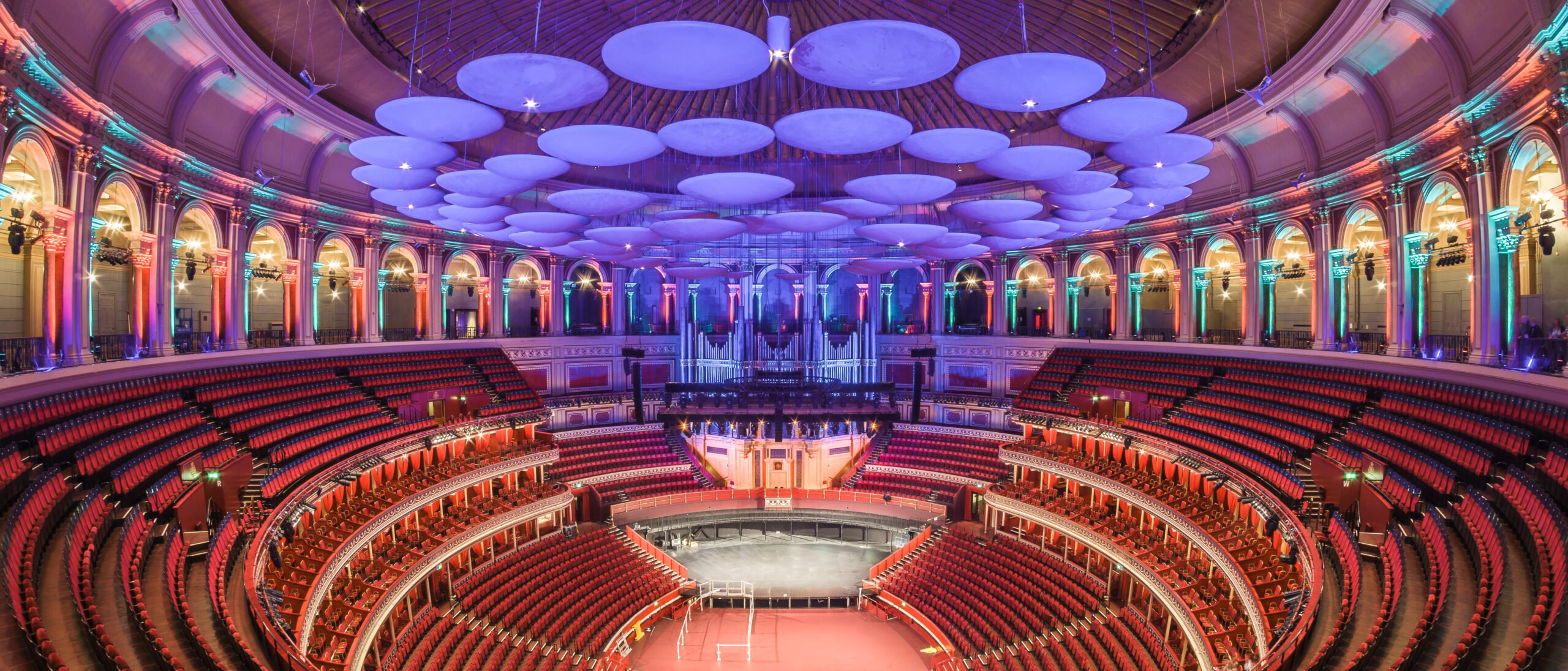
Photo: © User:Colin / Wikimedia Commons / CC BY-SA-4.0
Royal Albert Hall drops request for more private seats
A private bill put to parliament by the Royal Albert Hall had sought to grant its governing body the power to sell an extra 52 seats to investors.
The Royal Albert Hall (RAH) has proposed an amendment to a controversial parliamentary bill, removing a clause that would have given its governing body the authority to sell more seats to investors.
The Royal Albert Hall was established by royal charter and requires parliament to approve changes to its constitution. The changes it proposes are contained in the Royal albert Hall Bill currently progressing through the Lords. The proposal to sell more seats to private investors had drawn criticism from peers because of concerns that the charity’s unusual governance arrangements create a “conflict of interest” for trustees who are also private seat owners and legally entitled to profit from the resale of their tickets.
A report by the committee established to determine whether the bill should proceed, published last week, revealed that following the proposed amendment Attorney General Victoria Prentis would not object to the bill, but she did criticise “a missed opportunity to effect meaningful change” to the hall’s governance.
READ MORE:
- Peers criticise Royal Albert Hall 'conflicts of interest’
- Royal Albert Hall box goes on the market for £3m
When it opened in 1871, RAH was part-funded by financial backers allocated seats in return for an initial investment. Today, 329 private owners, including charities, companies, and individuals, hold 1,268 of the hall's seats on 999-year leases, some with family ownership dating back to the 19th Century.
Seat holders support the hall financially by paying an annual levy called the “seat rate”, which averages £1,900 plus VAT. They must also forgo their tickets for some 100 days each year, known as exclusions, so the hall can sell more commercially to non-seat holders.
The hall’s 25-strong governing council includes 18 members and a president elected from and voted for solely by private seatholders. Royal Albert Hall says this arrangement “gives them a unique perspective and a personal link to the hall.”
RAH had hoped to expand the number of private seats by 52. However, several peers objected, drawing attention to the issue of council members having influence over decisions directly related to seat holders, including which concerts are available to them and how much they pay annually for seats.
Last year, Conservative peer Lord Hodgson said the governing arrangement meant that "within the shell of a registered charity, the trustees are running what appears to be a personally highly profitable operation."
He pointed out that tickets for Ed Sheeran’s November show were listed at up to £6,000 on Viagogo's resale website and that a £100 ticket for the last night of the Proms, which BBC license fee payers fund, fetched £1,218.
"There must be a concern, or at least the possibility, that the idea of selling Ed Sheeran seats is more important than an equally worthy but less prestigious concert, such as a school choir competition,” said Hodgson.
He added that while “the right to enjoy your private property is, of course, an important cornerstone of our civil society”, when RAH became a charity in 1967, it gained “a public benefit objective, tax advantages and the regulation of the Charity Commission."
"Disappointment"
In responding to RAH’s plan to remove the provision of the extra private seats from the bill, Prentis further addressed the issue: “I must, however, express my disappointment that the bill is not more ambitious. It is widely acknowledged that the constitution of the Corporation of the Hall of Arts and Sciences gives rise to a potential conflict between the private interests of seat-holding trustees and the Corporation’s charitable objects.
“This potential conflict is of significant concern to the Charity Commission and many well-informed observers. Indeed, I wrote last year to the President of the Corporation to express my disappointment that more had not been done to resolve the conflicts issue in the many years of its existence.”
The report reveals that despite mounting objections, RAH “opposes any amendments to their governance which would risk jeopardising the relationship which seat-holders have with the hall” and noted that an “impasse” had been reached.
'A matter of considerable public interest'
The report and letter were published following a committee hearing to consider a petition against the bill from the anti-ticket tout organisation FanFair Alliance and the Court of the Worshipful Company of Musicians, a City of London Guild. Both groups were represented in the hearing by former RAH President Richard Lyttelton, who has long campaigned for change to its governance arrangements.
The committee ruled against the opposition but said it “regretted” reaching that conclusion because the hall's governance is “a matter of considerable public interest and concern.” It also noted that the Charity Commission has previously “been prevented” from taking the matter forward.
In 2017, the Charity Commission asked former Attorney General Jeremy Wright for permission to take a case about the hall’s governance arrangements to the charity tribunal. This was granted but rescinded a few weeks later following RAH's threat of a judicial review regarding the decision.
Another request was refused in 2021 by former Attorney General Michael Ellis,
In its closing statement, the committee said it planned to draw the matter to the government's attention so that “a way forward can eventually be found to address the concerns raised in the Attorney General’s report”.
Arts Professional has contacted RAH for comment.
Join the Discussion
You must be logged in to post a comment.